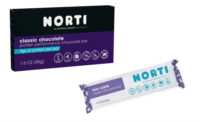 Raluca Florea
Raluca Florea
In order to learn more about these findings, and what they might mean for snack and bakery product development, we reached out to Raluca Florea, gut health leader, health, and well-being, Puratos, Groot-Bijgaarden, Belgium.
Douglas J. Peckenpaugh: What is Taste Tomorrow? And what did you learn about gut and digestive health, as well as immunity, from the recent survey?
Raluca Florea: Taste Tomorrow is a unique research program, and now the largest ecosystem for consumer understanding in bakery, pâtisserie, and chocolate. It provides in-depth insight into global and local consumer behaviors, attitudes, and choices. The proprietary research program offers a footstep into the future by tracking the evolution of food trends—and unveiling new ones. Taste Tomorrow continuously monitors trends, by combining qualitative research with the latest digital technologies and semantic artificial intelligence techniques. In addition to social listening and detailed interviews with foodies in trend-setting cities, we regularly question more than 17,000 consumers in 40 countries.
The drive for healthier eating is of course already well-known. But at our latest Taste Tomorrow event, we presented findings that showed growing interest in, awareness of and desire for foods that support gut health. For instance, over three in four American consumers know that fiber has a positive effect on digestion, and 55% are interested in foods that support gut health. 69% believe that improving gut health positively impacts immunity.
This represents a huge opportunity for bakers. We’ve seen the success of gut-healthy ingredients in other categories, especially dairy, and now we can leverage the unique taste, texture and health benefits of fibers to tap into this demand in bakery too.
DJP: Why are we seeing gut health emerge as an important trend to watch?
RF: The scientific community has been curious for many years about the role of the gut in overall health. This means huge efforts have gone into understanding the human microbiome and how diet influences it – from the first days of life right into our senior years. Their research has unveiled how much more the gut impacts than simply digestive function. Today, nearly seven in ten people worldwide understand the link between the gut and digestive health. But more and more scientific studies are now showing how much wider its ramifications are – from immunity to mental and emotional well-being. And maybe, in future, there will be more.
So it’s become clear that, by looking after those bacteria in the gut, consumers will enjoy benefits far beyond their digestive systems. And what we’re seeing in scientific advancement, is also being reflected in consumer awareness. The past twelve months have seen an increase of 40% in the number of social media conversations about gut health. And so foods with a gut health positioning are obviously a very attractive proposition.
Plus in the last couple of years, of course, with a global pandemic, both immunity and mental health have shot up the agenda worldwide. As both these are areas of health known to be enhanced by good gut health, it’s no surprise this topic is such a big one. But this isn’t a fad that will disappear when the immediacy of the pandemic is past. Gut health is here to stay, no question.
When it comes to gut health in bakery, Taste Tomorrow found that 57% of American consumers of bakery products agree that prebiotics are a trusted way to improve gut health. With seeds and grains being natural, well-known sources of fiber that has a prebiotic effect in the gut (as well as other benefits of course), we predict gut-health bakery is set for significant expansion over the coming years.
DJP: What types of baked goods do you think make the most sense for gut-healthy formulations?
RF: Bread is a great application to integrate more gut-healthy ingredients. It is an important staple food for most of the population, and already offers much scope for creativity. So it can be a useful vehicle for beneficial gut-healthy ingredients, such as soluble and insoluble dietary fiber, and integrating them into the diet. Doing this can improve the composition of gut flora, which plays a major role in digestive health by feeding “friendly” bacteria. Moreover, the WHO has also recommended daily fiber intake to be 25 to 30 grams. However, the challenge that bakery innovators face these days is adding high amounts of fiber can have a negative impact on product structure and sensory properties.
It has been shown that sourdough and enzymes can be used as solutions to improve the structural profile of high-fiber breads. Fermented sourdough can give possible functional and other benefits to potentially lower glycemic index, increase mineral bioavailability, and decrease gluten content.
Bread made from sprouted, fermented grains can also offer potential gut health benefits. In fact, the sprouting process changes the nutritional profile of the grains, making their nutrients more readily available and possibly easier to digest. It therefore increases both protein bioavailability and amino acid content.





